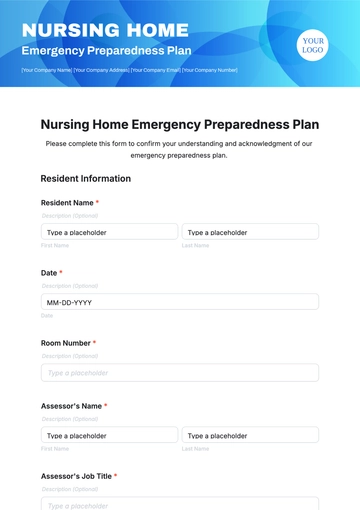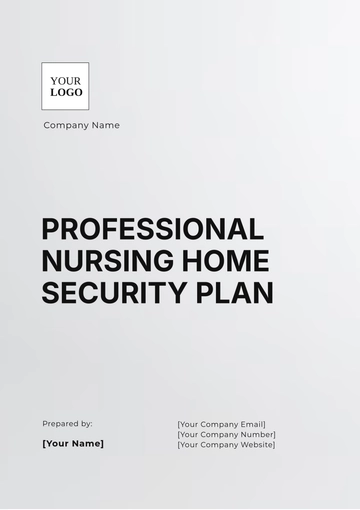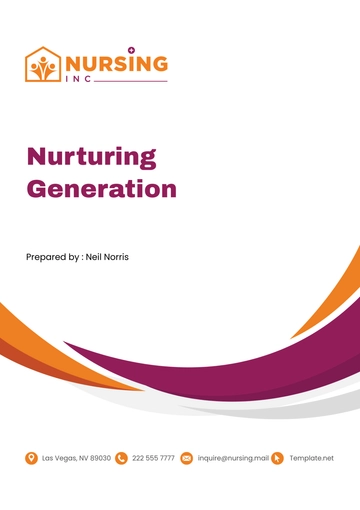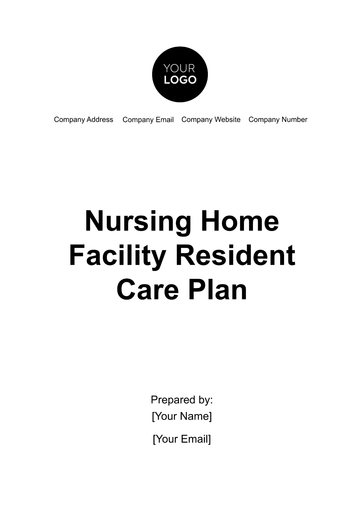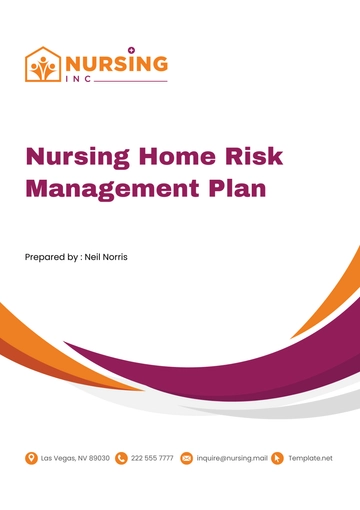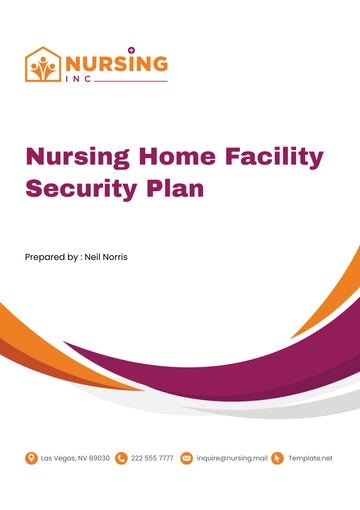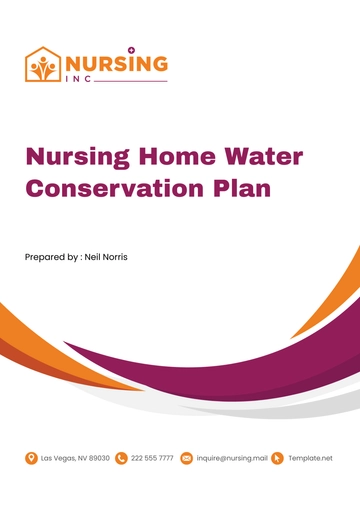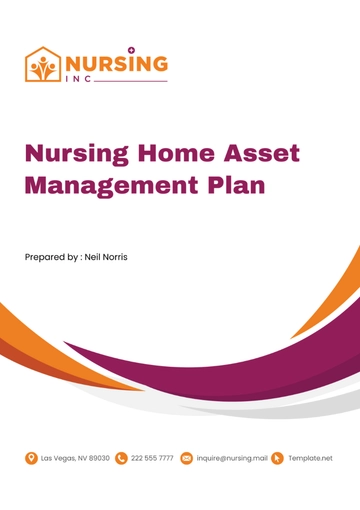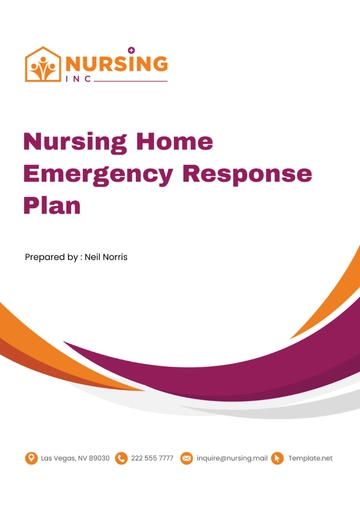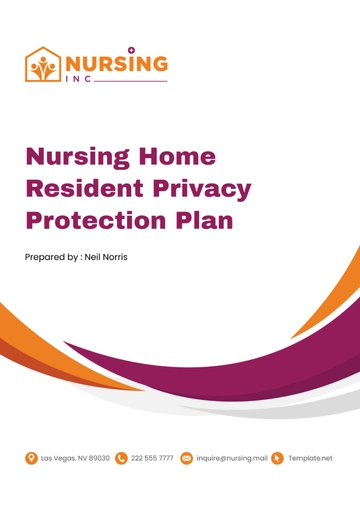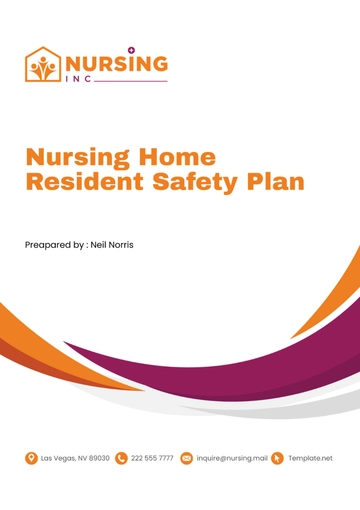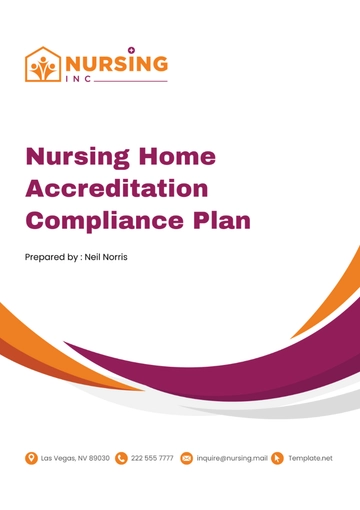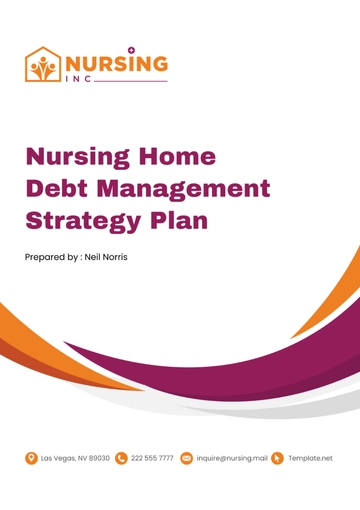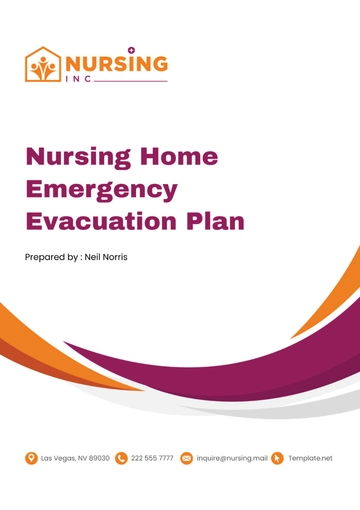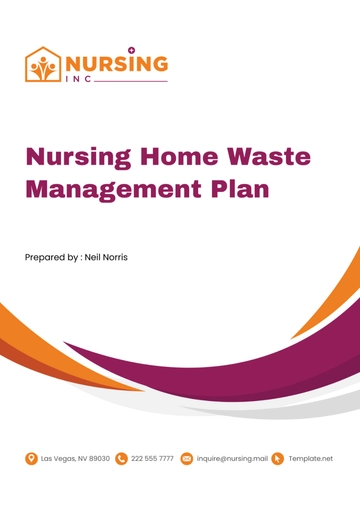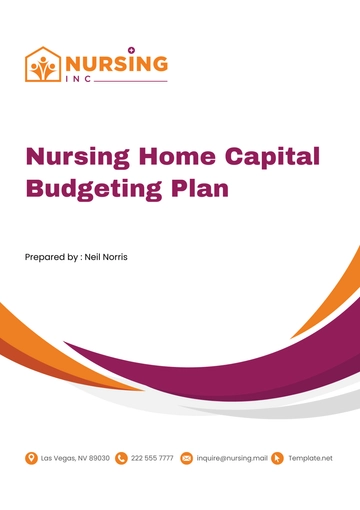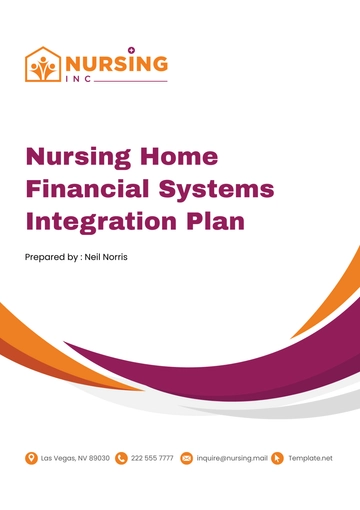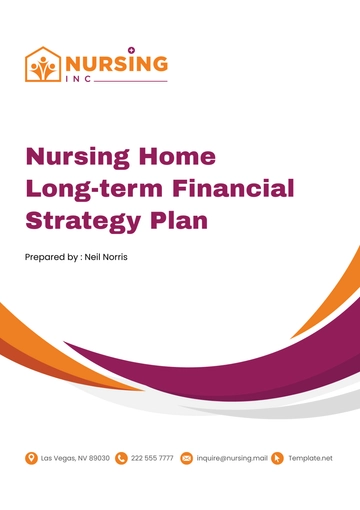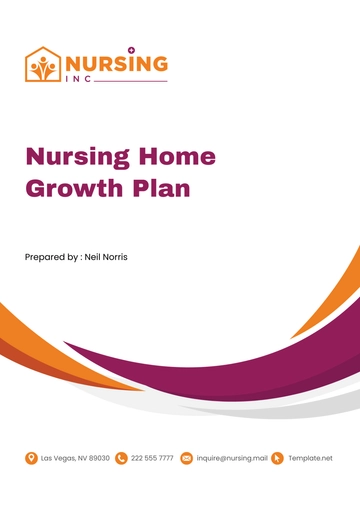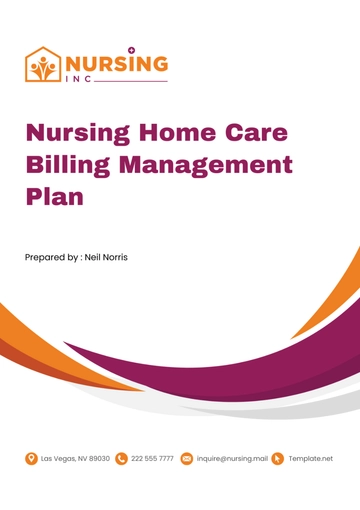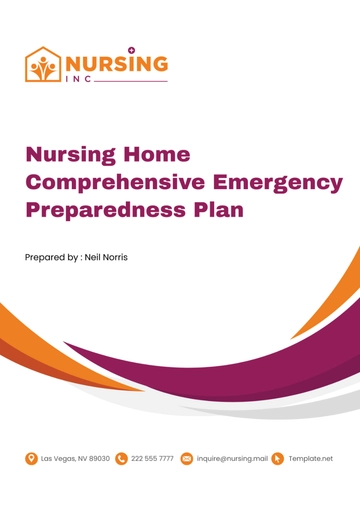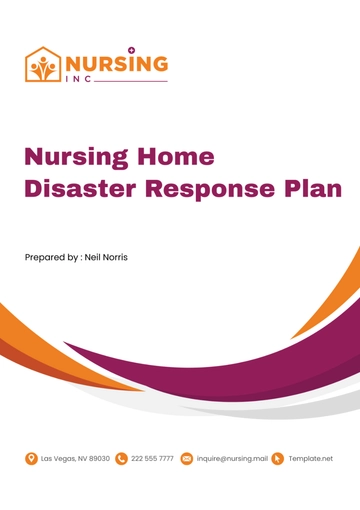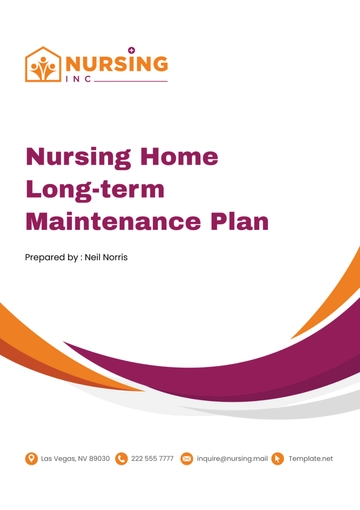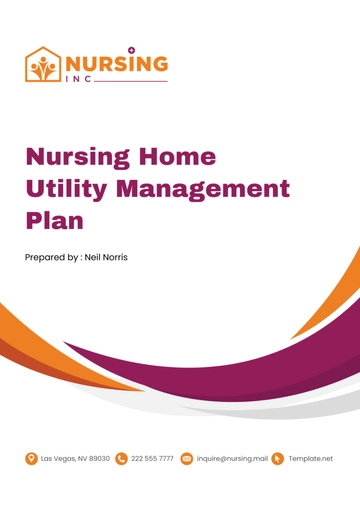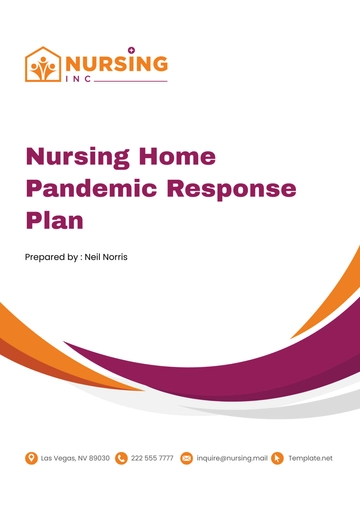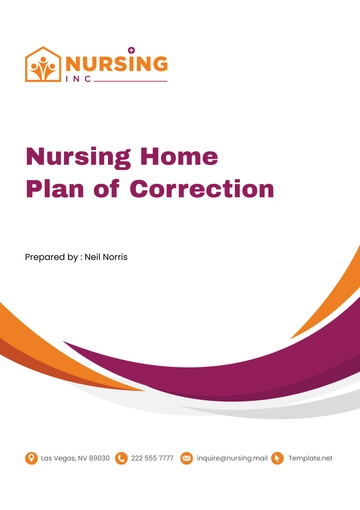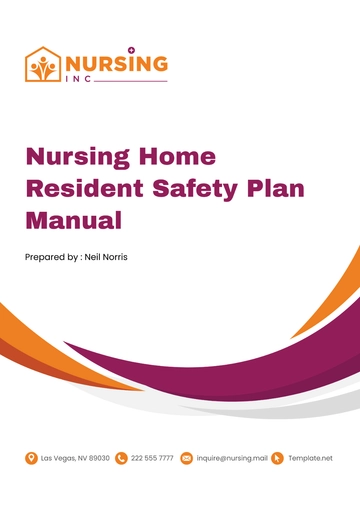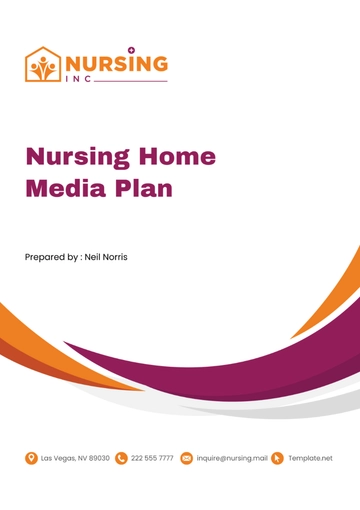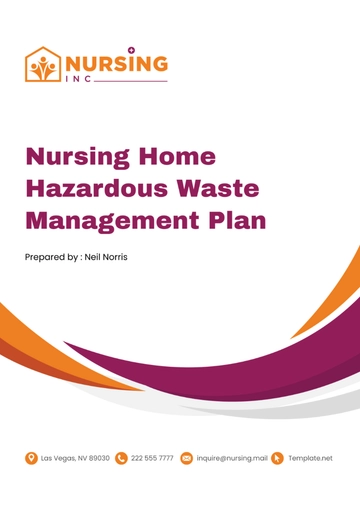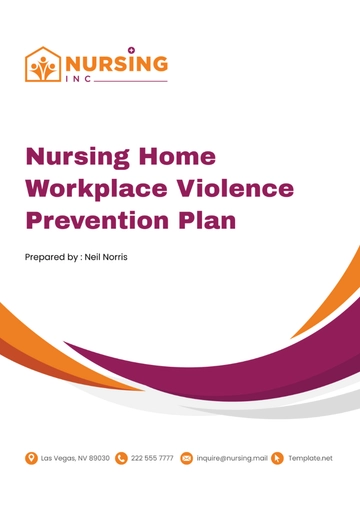Free Nursing Home Discharge Plan
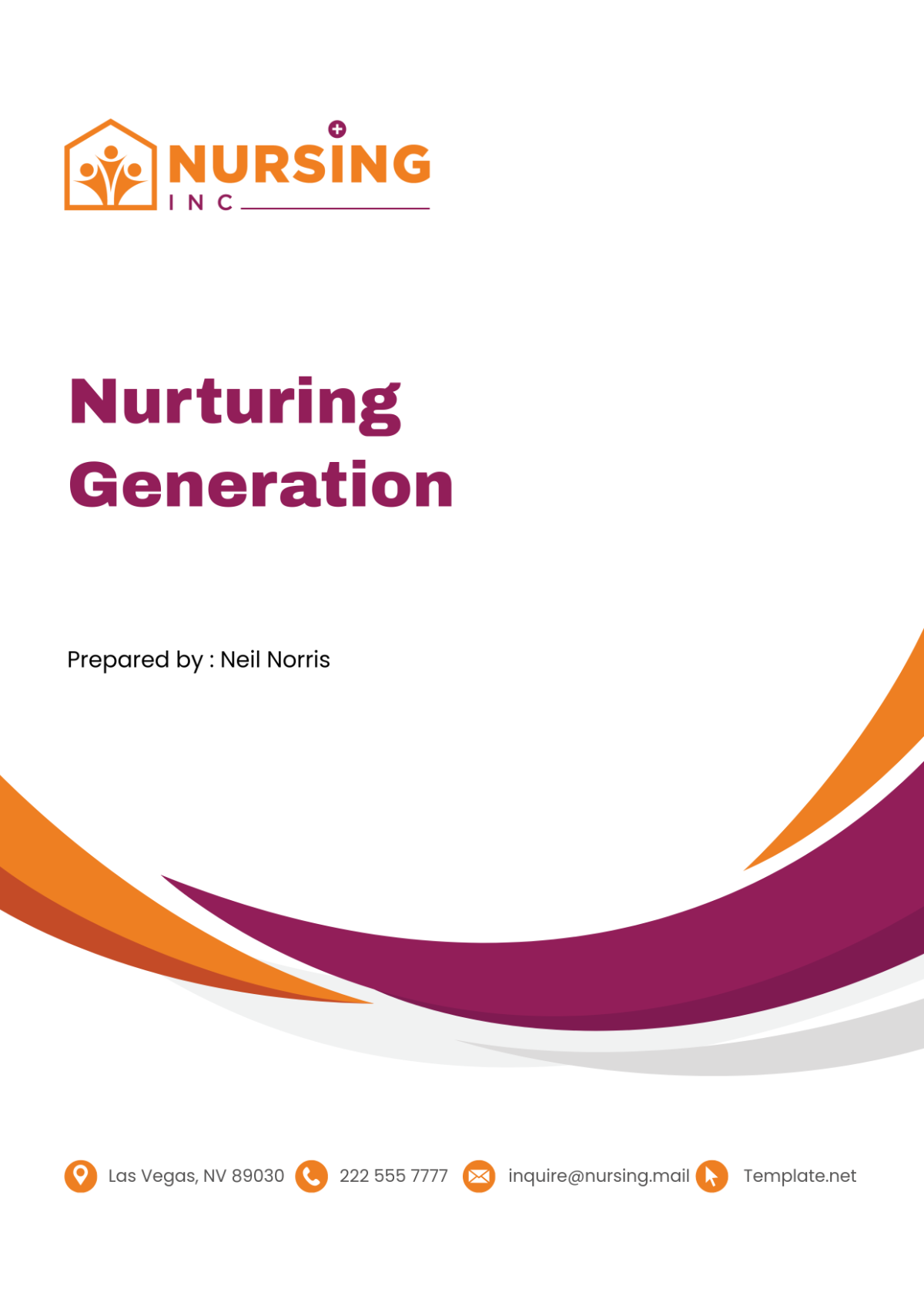
I. Introduction
The Nursing Home Discharge Plan is a meticulously designed document intended to facilitate a seamless transition from a nursing home to a home environment or another care facility. This plan is a collaborative effort among healthcare professionals, the resident, their family, and caregivers. The objective is to ensure that the resident’s health, safety, and comfort are prioritized throughout the transition process.
Discharge planning is a crucial aspect of post-acute care, focusing on preparing the resident to return to their home or another care setting while minimizing the risk of complications or rehospitalization. A well-structured discharge plan helps in managing ongoing health needs, supports the resident’s autonomy, and contributes to a higher quality of life.
II. Resident Information
The Resident Information section captures essential personal and medical details to ensure continuity of care and to tailor the discharge plan to the resident’s specific needs.
A. Personal Details
Detail | Information |
|---|---|
Full Name: | |
Date of Birth: | |
Address Before Admission: | |
Emergency Contact: | |
Contact Information: |
The full name and date of birth are crucial for accurate identification and to ensure that all medical records and prescriptions are correctly matched to the resident. The address before admission helps in understanding the resident’s previous living conditions, which can be important for assessing the suitability of their home environment for post-discharge care. The emergency contact details provide a direct line for any urgent communications or updates regarding the resident’s health.
B. Admission Summary
Information | Details |
|---|---|
Admission Date: | |
Primary Diagnosis: | |
Secondary Conditions: | |
Mobility Status: | |
Cognitive Status: |
The admission summary provides a snapshot of the resident’s health status at the time of their entry into the nursing home. This includes their primary and any secondary diagnoses, which are crucial for understanding the ongoing treatment needs and monitoring their progress. The mobility and cognitive status offer insight into the level of assistance the resident will need upon discharge, which is essential for planning their home care and any necessary modifications to their living space.
III. Discharge Planning Overview
This section outlines the general approach and key elements involved in the discharge process to ensure a smooth transition for the resident.
A. Discharge Date
The discharge date is set for [Discharge Date], which has been carefully chosen based on the resident’s medical evaluation, recovery progress, and readiness for the next phase of care. This date is flexible and may be adjusted if there are any changes in the resident’s condition or if additional time is needed for preparation.
The chosen discharge date is a result of thorough discussions among healthcare providers, the resident, and their family, ensuring that all parties agree that it is the most appropriate time for the resident to leave the nursing home. Any changes to this date will be communicated promptly to all involved parties to make necessary adjustments to the plan.
B. Reason for Discharge
The decision to discharge the resident is based on several factors:
Improved Health:
The resident has demonstrated notable improvement in their physical and/or cognitive health, making it safe for them to transition from the nursing home environment. This improvement is assessed through various medical evaluations and assessments conducted by healthcare professionals.Completion of Rehabilitation:
The resident has completed their prescribed rehabilitation program, such as physical therapy or occupational therapy. They have met the goals set for their rehabilitation, and their condition has stabilized to the extent that they can manage at home with or without additional support.Resident’s or Family’s Request:
Either the resident or their family has requested discharge, and this request has been evaluated and deemed appropriate by the care team. This decision takes into account the resident’s health status, the support system available at home, and the family’s readiness to assume caregiving responsibilities.
C. Discharge Process
The discharge process involves several key steps to ensure that the transition is smooth and that all necessary preparations are completed.
Pre-discharge Meeting:
A meeting will be held with healthcare professionals, the resident, and their family to discuss the discharge plan. This meeting will cover all aspects of the plan, including medical care, home modifications, and caregiver responsibilities. It is an opportunity to address any concerns or questions and to ensure that everyone involved understands their roles and responsibilities.Care Plan Review:
A final review of the care plan will be conducted, detailing the resident’s ongoing care needs, including medication schedules, therapy requirements, and any special instructions for home care. This review ensures that there are no gaps in care and that the resident’s needs are thoroughly addressed.Educational Sessions:
Educational sessions will be provided to the resident and their caregivers on various aspects of home care. These sessions will include instruction on medication management, wound care, and emergency response. The goal is to equip the caregivers with the knowledge and skills needed to provide effective care at home.
IV. Assessment of Resident’s Needs
A comprehensive assessment is conducted to identify the resident’s needs and to plan for their care post-discharge effectively.
A. Medical Needs
Ongoing Medical Treatment:
Post-discharge, the resident may require ongoing medical treatment for chronic or acute conditions. A detailed regimen will be outlined, including all prescribed medications, their dosages, and the schedule for administration.Medications: A comprehensive list of medications will be provided, including the purpose of each drug, potential side effects, and any specific instructions for use. The pharmacy will be contacted to ensure that prescriptions are filled and available for the resident upon discharge.
Medical Equipment: If the resident requires medical equipment, such as oxygen tanks, mobility aids, or specialized beds, these will be arranged and delivered to their home prior to discharge. The use and maintenance of this equipment will be explained to the resident and their caregivers.
Follow-up Care:
Follow-up care is essential for monitoring the resident’s recovery and addressing any ongoing health issues.Primary Care Provider Contact: The resident will have an appointment with their primary care provider shortly after discharge. This appointment will be scheduled and confirmed before the resident leaves the nursing home.
Specialist Visits: If the resident has been seeing specialists, appointments with these healthcare providers will be arranged to ensure continuity of care. Referrals and necessary documentation will be provided to facilitate these visits.
B. Physical Rehabilitation
Residents who require physical rehabilitation will have a structured plan for continuing their therapy at home.
In-home Physical Therapy: Arrangements will be made for a licensed physical therapist to visit the resident’s home to provide therapy sessions. The frequency and duration of these visits will be based on the resident’s rehabilitation needs and goals.
Mobility Training: Training on the use of mobility aids, such as walkers or canes, will be provided to help the resident navigate their home environment safely. This training will include exercises to improve strength and balance, reducing the risk of falls.
C. Mental and Emotional Support
Addressing the mental and emotional well-being of the resident is crucial for their overall recovery.
Counseling Services: If the resident requires emotional or psychological support, counseling services will be arranged. These services may be provided by licensed therapists or counselors, either in-person or through telehealth platforms.
Support Groups: Participation in support groups can provide emotional support and a sense of community. The resident will be provided with information about local or online support groups that are relevant to their condition or situation.
D. Nutritional Requirements
Proper nutrition is vital for recovery and overall health.
Dietary Restrictions:
If the resident has specific dietary needs or restrictions, such as a low-sodium or diabetic diet, a nutritionist will provide guidelines to ensure that these needs are met.Meal Delivery Services:
For residents who may have difficulty preparing meals, meal delivery services will be arranged. This service ensures that the resident has access to nutritious and balanced meals tailored to their dietary requirements.
V. Post-Discharge Care
Post-discharge care is designed to support the resident’s recovery and adaptation to their home environment.
A. Home Health Care
Personal Care Aides:
Personal care aides may be needed to assist with daily activities such as bathing, dressing, and grooming. The frequency of these services will be determined based on the resident’s level of independence and needs.Service Provider: The name and contact information of the home care agency providing these services will be given, along with details about the aides assigned to the resident.
Schedule: The schedule for personal care visits will be established, and any changes will be communicated to the resident and their family promptly.
Skilled Nursing Care:
Skilled nursing care may be necessary for administering medications, managing wounds, or providing specialized medical care.Frequency: The number of visits required will be based on the resident’s medical needs and will be arranged with a licensed nurse.
Nurse’s Contact: The contact information for the nurse or nursing agency will be provided, along with details about their role and responsibilities.
B. Medication Management
Effective medication management is crucial for the resident’s health and well-being.
Pharmacy Services:
Arrangements will be made with a local pharmacy to ensure that all prescriptions are filled and available for the resident. The pharmacy will be provided with the resident’s prescription information and any special instructions.Medication Schedule:
A detailed medication schedule will be created, listing all medications, dosages, and times for administration. This schedule will be reviewed with the resident and their caregivers to ensure understanding and adherence.Caregiver Training:
Training will be provided to caregivers on how to administer medications, including any specific techniques or precautions. This training will ensure that medications are administered correctly and safely.
C. Emergency Plan
An emergency plan is essential for addressing potential health crises and ensuring the resident’s safety.
Emergency Contact List:
A list of emergency contacts, including healthcare providers, family members, and emergency services, will be provided. This list will be easily accessible to ensure that help can be obtained quickly if needed.Doctor's Name: Contact information for the resident’s primary care physician and any specialists will be included.
Family Contact: The contact information for family members who can be reached in case of an emergency will be provided.
Emergency Procedures:
Detailed instructions on what to do in case of an emergency will be given. This will include guidance on when to call 911, how to manage sudden health changes, and where to seek immediate medical assistance.Home Safety Enhancements:
Recommendations for making the home safer for the resident will be provided. This may include installing grab bars in the bathroom, adding ramps for wheelchair access, and ensuring that the home is free of tripping hazards.
VI. Resident and Caregiver Education
Education plays a critical role in ensuring that the resident and their caregivers are well-prepared for the post-discharge period.
A. Health Management
Medication Administration:
The resident and their caregivers will receive detailed instructions on how to administer medications, including any specific requirements for certain drugs. This will cover dosage, timing, and potential side effects.Wound Care:
If applicable, instructions for wound care will be provided. This will include how to clean and dress wounds, recognize signs of infection, and when to seek medical help if problems arise.Monitoring Symptoms:
Caregivers will be trained on how to monitor symptoms such as changes in blood pressure, blood sugar levels, or signs of infection. This training will help in identifying any health issues early and taking appropriate action.
B. Mobility and Rehabilitation Exercises
Education on mobility and rehabilitation exercises will be provided to help the resident maintain their physical health and prevent complications.
Exercise Demonstrations: Demonstrations of recommended exercises will be conducted to ensure that the resident and caregivers understand how to perform them correctly.
Exercise Schedule: A schedule of exercises will be provided, including frequency and duration, to ensure consistency and effectiveness in the rehabilitation process.
C. Nutritional Counseling
Nutritional counseling will help the resident and their caregivers understand how to maintain a balanced diet that supports health and recovery.
Cooking Demonstrations: Cooking demonstrations may be provided to show how to prepare healthy meals that meet the resident’s dietary needs.
Shopping Lists: Sample shopping lists will be provided to help caregivers purchase the necessary foods and ingredients for the resident’s diet.
Meal Preparation Advice: Tips on meal preparation and storage will be given to ensure that meals are nutritious and safe.
VII. Financial Planning and Insurance
Financial planning is an essential component of the discharge process, ensuring that the resident’s care is financially manageable.
A. Insurance Coverage
Insurance Provider:
The resident’s insurance provider will be contacted to confirm coverage for home health services, medications, and any required equipment.Coverage Details:
A detailed breakdown of insurance coverage will be provided, including information about co-pays, deductibles, and any limits on coverage. This will help the resident and their family understand their financial responsibilities and plan accordingly.
B. Financial Assistance Programs
If additional financial assistance is needed, the resident will be informed of various programs and resources available to help cover costs.
Medicaid/Medicare Eligibility:
The resident’s eligibility for Medicaid or Medicare will be assessed to determine if these programs can help cover long-term care costs. Assistance with applying for these benefits will be provided if needed.Charitable Organizations:
Information about local and national charitable organizations that offer financial support for elderly individuals will be provided. These organizations may offer grants or other forms of financial aid to help cover uncovered expenses.
VIII. Follow-Up and Monitoring
Ongoing follow-up and monitoring are critical to ensuring that the resident continues to receive appropriate care and support after discharge.
A. Scheduled Follow-Up Appointments
Follow-up appointments are essential for tracking the resident’s progress and addressing any ongoing health concerns.
Primary Care Provider: An appointment with the primary care provider will be scheduled within [7-10 days] of discharge. This visit will allow for a thorough assessment of the resident’s health and any necessary adjustments to their care plan.
Specialists: If the resident requires care from specialists, these appointments will be arranged and confirmed prior to discharge. The resident will be provided with details about the specialists, including their contact information and appointment dates.
B. Home Health Check-Ins
Home health check-ins will be conducted to ensure that the resident’s needs are being met and to make any necessary adjustments to the care plan.
Frequency of Visits: The frequency of home health check-ins will be based on the resident’s needs and will be scheduled accordingly. These visits will allow healthcare professionals to monitor the resident’s condition, provide additional care if needed, and address any concerns.
- 100% Customizable, free editor
- Access 1 Million+ Templates, photo’s & graphics
- Download or share as a template
- Click and replace photos, graphics, text, backgrounds
- Resize, crop, AI write & more
- Access advanced editor
Plan patient transitions with the Nursing Home Discharge Plan Template from Template.net. This editable and customizable template helps create comprehensive discharge plans. Personalize it in our Ai Editor Tool for smooth and effective patient transitions. Facilitate smooth transitions—design your discharge plans with ease!
You may also like
- Finance Plan
- Construction Plan
- Sales Plan
- Development Plan
- Career Plan
- Budget Plan
- HR Plan
- Education Plan
- Transition Plan
- Work Plan
- Training Plan
- Communication Plan
- Operation Plan
- Health And Safety Plan
- Strategy Plan
- Professional Development Plan
- Advertising Plan
- Risk Management Plan
- Restaurant Plan
- School Plan
- Nursing Home Patient Care Plan
- Nursing Care Plan
- Plan Event
- Startup Plan
- Social Media Plan
- Staffing Plan
- Annual Plan
- Content Plan
- Payment Plan
- Implementation Plan
- Hotel Plan
- Workout Plan
- Accounting Plan
- Campaign Plan
- Essay Plan
- 30 60 90 Day Plan
- Research Plan
- Recruitment Plan
- 90 Day Plan
- Quarterly Plan
- Emergency Plan
- 5 Year Plan
- Gym Plan
- Personal Plan
- IT and Software Plan
- Treatment Plan
- Real Estate Plan
- Law Firm Plan
- Healthcare Plan
- Improvement Plan
- Media Plan
- 5 Year Business Plan
- Learning Plan
- Marketing Campaign Plan
- Travel Agency Plan
- Cleaning Services Plan
- Interior Design Plan
- Performance Plan
- PR Plan
- Birth Plan
- Life Plan
- SEO Plan
- Disaster Recovery Plan
- Continuity Plan
- Launch Plan
- Legal Plan
- Behavior Plan
- Performance Improvement Plan
- Salon Plan
- Security Plan
- Security Management Plan
- Employee Development Plan
- Quality Plan
- Service Improvement Plan
- Growth Plan
- Incident Response Plan
- Basketball Plan
- Emergency Action Plan
- Product Launch Plan
- Spa Plan
- Employee Training Plan
- Data Analysis Plan
- Employee Action Plan
- Territory Plan
- Audit Plan
- Classroom Plan
- Activity Plan
- Parenting Plan
- Care Plan
- Project Execution Plan
- Exercise Plan
- Internship Plan
- Software Development Plan
- Continuous Improvement Plan
- Leave Plan
- 90 Day Sales Plan
- Advertising Agency Plan
- Employee Transition Plan
- Smart Action Plan
- Workplace Safety Plan
- Behavior Change Plan
- Contingency Plan
- Continuity of Operations Plan
- Health Plan
- Quality Control Plan
- Self Plan
- Sports Development Plan
- Change Management Plan
- Ecommerce Plan
- Personal Financial Plan
- Process Improvement Plan
- 30-60-90 Day Sales Plan
- Crisis Management Plan
- Engagement Plan
- Execution Plan
- Pandemic Plan
- Quality Assurance Plan
- Service Continuity Plan
- Agile Project Plan
- Fundraising Plan
- Job Transition Plan
- Asset Maintenance Plan
- Maintenance Plan
- Software Test Plan
- Staff Training and Development Plan
- 3 Year Plan
- Brand Activation Plan
- Release Plan
- Resource Plan
- Risk Mitigation Plan
- Teacher Plan
- 30 60 90 Day Plan for New Manager
- Food Safety Plan
- Food Truck Plan
- Hiring Plan
- Quality Management Plan
- Wellness Plan
- Behavior Intervention Plan
- Bonus Plan
- Investment Plan
- Maternity Leave Plan
- Pandemic Response Plan
- Succession Planning
- Coaching Plan
- Configuration Management Plan
- Remote Work Plan
- Self Care Plan
- Teaching Plan
- 100-Day Plan
- HACCP Plan
- Student Plan
- Sustainability Plan
- 30 60 90 Day Plan for Interview
- Access Plan
- Site Specific Safety Plan
